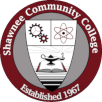 Operating Standard
Operating Standard
Type: Administrative
Responsible: VP Academic Affairs
Related Policies: A2100
Linked Operating Standards: A2100.00, A2100.05, A2100.10, A2100.15, A2100.20, A2100.25, A2100.30, A2100.35, A2100.45, A2100.55, A2100.60, A2100.70
Related Laws: ICCB Section 1501.303
Related External Standards: ICCB Program Approval, ICCB Program Review
HLC Criterion: 1C, 3A3, 4A1, 5C5
A2100.40 Advisory Committees PDF
Sample Agenda
Sample Sign-in Sheet
Sample Email Template
Statement
Shawnee Community College is committed to ensuring that its professional programs maintain relevance, align with industry standards, and effectively prepare students for the workforce. Advisory Committees serve as a vital link between the College and the communities it serves, fostering collaboration with industry professionals, alumni, faculty, and other stakeholders. These committees provide guidance on curriculum development, emerging trends, and workforce needs while supporting student success through networking and career opportunities.
The College values diverse, inclusive, and representative Advisory Committee membership that reflects its service area and student body, including considerations for industry sectors, geographic representation, and educational levels (high school, college, university).
By maintaining active and engaged Advisory Committees, the College upholds its commitment to continuous improvement, accreditation compliance, and the delivery of high-quality educational programs that respond to evolving employer expectations and community needs.
Guidelines
Formation of Advisory Committees:
Each professional program will establish an Advisory Committee comprised of members who represent key stakeholders, including:
- Industry professionals and employers.
- Alumni of the program (when applicable).
- Faculty and staff.
- At least one current student or recent graduate is encouraged to ensure student perspectives are represented.
- Community members with relevant expertise.
For accredited programs, membership must include a minimum of five individuals who bring diverse perspectives relevant to the program. Diversity in committee composition is strongly encouraged, including considerations such as industry sector, geography, and educational background.
To ensure member engagement and rotation, committee members should serve terms of 2–3 years, with optional renewal. This structure helps promote fresh input and prevents stagnation. Advisory Committees must be approved by the Department Chair and the respective Dean (i.e., Dean of Allied Health and Nursing or Dean of Career and Technology).
Roles and Responsibilities
Recommendations made by Advisory Committees are advisory in nature. While every effort will be made to thoughtfully consider and implement their guidance, not all recommendations may be feasible due to resource limitations, regulatory constraints, or strategic priorities. When applicable, program leadership will communicate the rationale for decisions back to the committee.
Advisory Committee Members
- Provide guidance on curriculum relevance and alignment with current industry practices.
- Offer input on emerging trends and skill requirements within the field.
- Assist in identifying internship and employment opportunities for students.
- Review program outcomes and accreditation requirements.
- Serve as liaisons between the College and community stakeholders.
Program Coordinator/Director/ Dean
- Schedule Advisory Committee meetings and contact committee members.
- Work with program Chair and faculty to develop an agenda and distribute.
- Facilitate Advisory Committee meetings and maintain communication with members.
- Document meeting minutes, attendance, and action items.
- Ensure committee recommendations are considered in program improvement:
- ICCB 5-year program review
- New program approvals through ICCB and HLC
- SCC annual program improvement plans (CQIs)
- Annual grant reports (i.e. Perkins)
- Accreditation reviews and reports
Meeting Requirements
- Advisory Committees must meet at least twice per academic year.
- Meetings may be conducted in person, virtually, or in a hybrid format.
- Agendas must be distributed to committee members at least one week prior to each meeting.
- Meeting minutes must be documented and retained for a minimum of five years.
- Records of meetings are maintained, including:
- Meeting dates and attendance records.
- Summary of key discussions and recommendations.
- Actions taken in response to committee feedback.
- New members should receive an onboarding packet that includes the committee mission, expected outcomes, sample questions, and past meeting minutes to facilitate engagement and alignment.
- Programs are encouraged to use technology tools to enhance engagement and communication—such as shared digital folders for materials, calendar invites for scheduling, and digital feedback forms following meetings.
Review and Reporting
- Professional programs report to the Board of Trustees through an annual B1004 Professional Programming monitoring report.
- Outcomes of the Advisory Committees are incorporated in accreditation reports and ICCB 5-year program reviews.
Evaluation and Improvement
- The effectiveness of Advisory Committees will be reviewed annually by the academic Deans and Department chairs prior to scheduling the next academic year’s meetings.
- Prior to the conclusion of each Advisory Committee meeting, feedback from committee members will be solicited to improve the process and outcomes.
- Consideration should be given to formally recognizing Advisory Committee members through certificates of appreciation, mentions in College publications, or an annual recognition event.
Procedures
- Initial Setup
- Identify potential members based on their expertise and relevance to the program.
- Obtain approval for member selection from the respective Dean.
- Reserve the location, room, and catering services using the Event Request process.
- Issue formal invitations to selected members. A sample template is attached.
- Pre-Meeting Preparation
- Collaborate with faculty and staff to create a meeting agenda. Keep in mind any required agenda items for accreditation (i.e. ASE, AWS, ACEN) and/or licensure agencies (i.e. FMCSA, IDFPR). A sample agenda is attached.
- Distribute agenda, program updates, and other relevant materials to members.
- During the Meeting
- Follow the agenda to ensure all topics are covered.
- Record minutes, including attendance and key discussions.
- Ensure all members sign the sign-in sheet for a record of attendance and contribution. A sample sheet is attached.
- Post-Meeting Actions
- Distribute meeting minutes to members for review and feedback.
- Create an action plan based on recommendations.
- Implement changes and report progress to the committee.
- Save the meeting minutes, sign-in sheets, and any corresponding evidence in the Advisory Committee shared drive.
| Change Log | Governance Unit: Acad Affairs Council |
| Date | Description of Change |
| 3.27.25 | Initial Adoption |
